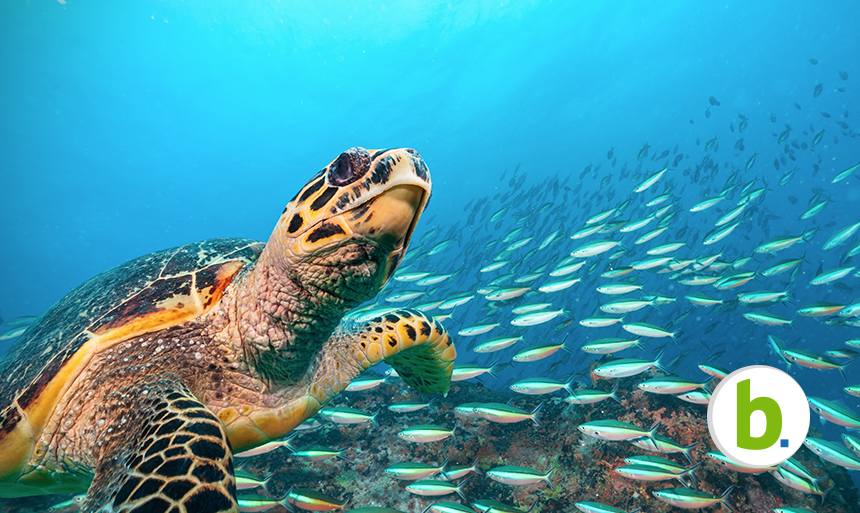June is also known as Environment Month, we celebrated World Environment Day on the 5th, World Ocean Day on the 8th and World Day to Combat Desertification and Drought on the 17th. It’s a month dedicated to spreading awareness about the dire state of our natural habitats. And who is the major culprit, other than humans, you ask? Plastic.
Sadly, you only need to look out the window when driving to the shops to see that this is true.
According to Science Alert, every year around 300 million tonnes of plastic is produced of which 10 million tonnes ends up in the ocean. In Europe alone, about 25 million tonnes of plastic waste is created, and less than 30% is recycled.
Not only is plastic pollution destroying our beautiful natural environments, but it’s also killing our animal kingdom. The Independent has reported on two separate whale deaths caused by plastic this year alone, although this issue has been around for some time. The first incident was in February where a sperm whale washed ashore on the southern coast of Spain – it had 29 kilos of plastic in its stomach that it couldn’t pass. The second incident, more recently, where a pilot whale was found starved to death in Taiwanese waters after consuming 80 plastic bags and other plastic objects.
These aren’t isolated incidents; every year thousands of animals and sea creatures die horrible deaths due to ingesting plastic and being snared in plastic waste. It’s also been found that microscopic plastic fragments have already made their way into the air and our food, which means it’s in our bodies.
So, what can we do to help right this terrible wrong?
1. Get involved. If people in your neighbourhood are already volunteering to clean up the streets, join them. You’ll meet new people and do something good for the environment.
2. Clean while you walk. When you go for your daily walk, take a refuge bag with you (and gloves), and pick up all the rubbish you see in the street. It might feel like a drop in the bucket, but it’ll be a drop that counts.
3. Support non-plastic initiatives. The EU is trying to pass a new policy to ban the top 10 single-use plastic products most commonly found on their beaches. These products includes toothbrushes, straws, earbuds and plastic shopping bags. Several African countries have already banned the use of plastic bags, while others, such as South Africa added a levy. However, certain stores and restaurants are banning the use of single-use plastic bags, straws, food containers, and more. Show your commitment by supporting these stores in their fight, or start a petition to have single-use plastic banned at stores your frequent.
4. Support organisations. There are plenty of organisations out there in need of help. You can either volunteer your time and skill or make donations. If money is tight and you still feel like you need to make a donation, you can always use the money you’ve saved with bsmart. When you receive your cash back payout, simply make a payment to your desired charity.
5. Stop buying single-use plastic. Review your home life to estimate how much plastic you use. Look at plastic wrap to cover leftovers, shopping bags, overly wrapped fresh produce, straws, plastic cutlery, and more. Always search for reusable products. When shopping, take your own or invest in reusable bags. If you’re stopping to buy coffee on your way to work, ask the manager if you can use your own mug. There are thousands of things you can do to reduce your plastic footprint, you just need to think about it.
6. Recycle. Unfortunately, it’s unavoidable to use plastic in this day and age. So, when you throw out plastic, don’t just throw it in your bin, recycle it.
At bsmart we want you to spend smart, which is why we’ve created our cash-back plan. But we also want you to live smart, which is why we’re always sharing informative blogs on our website – you can read them here. Speak to us if you need any advice or assistance on how to spend smart, save smart or live smart. Call 021 409 7600 or visit www.bsmart.co.za.

